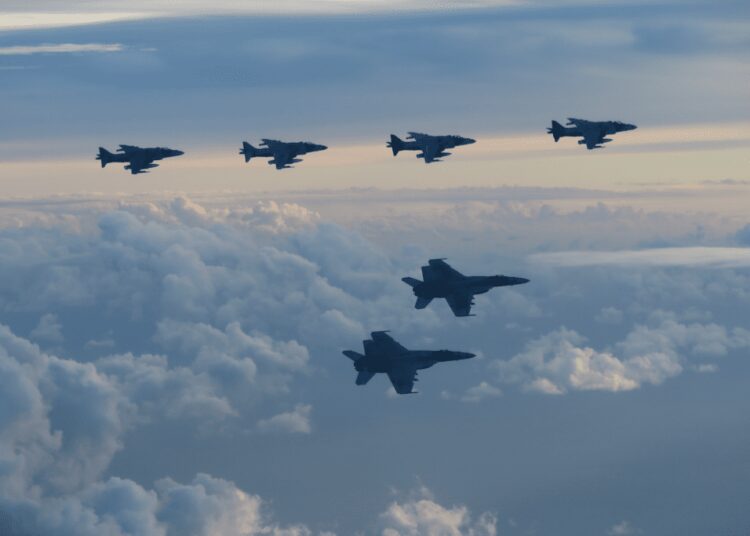Military policy is essential in shaping modern defense strategies as it provides a framework for decision-making and guides the development and implementation of defense plans and programs. It encompasses elements such as defense priorities, force structure, readiness, and strategic goals, all of which are crucial in meeting the evolving security challenges of the 21st century. Military policy helps assess the security environment, identify threats, allocate resources efficiently, and coordinate efforts with other national power elements. By establishing priorities, capabilities, and goals, military policy ensures that armed forces are equipped and trained to protect national interests, deter aggression, and promote stability in an increasingly complex global landscape.
The Role of Military Policy in Modern Defense Strategies
Introduction
In the rapidly changing and increasingly complex global security landscape, the role of military policy in shaping modern defense strategies has never been more important. Military policy is the set of guidelines, principles, and objectives that guide a country’s armed forces in their efforts to protect national interests and security. In this article, we will explore the key features and components of military policy, as well as its crucial role in shaping modern defense strategies.
Defining Military Policy
Military policy encompasses a wide range of elements, including national defense priorities, force structure and capabilities, readiness, training, and strategic goals. It is developed and implemented by policymakers, defense planners, and military leaders, with the aim of ensuring that the armed forces are properly equipped and trained to meet the challenges of the modern security environment. Military policy is guided by the country’s national security strategy, which sets out the government’s overall approach to protecting the country’s interests and values.
The Components of Military Policy
There are several key components of military policy that play a crucial role in shaping modern defense strategies. These include:
1. Defense Priorities: Military policy establishes the country’s defense priorities, which are typically based on an assessment of the security threats and challenges facing the nation. This includes identifying potential adversaries, assessing their capabilities, and determining how best to counter them.
2. Force Structure and Capabilities: Military policy determines the size and composition of the armed forces, as well as the types of weapons and equipment they will need to effectively carry out their missions. It also sets out how the military will be organized, trained, and equipped to meet current and future threats.
3. Readiness: Military policy includes measures to ensure that the armed forces are ready to respond to crises and conflicts at a moment’s notice. This includes maintaining a high state of readiness, conducting training exercises, and pre-positioning forces in key strategic locations.
4. Strategic Goals: Military policy outlines the country’s strategic goals and objectives, which may include deterring aggression, defending national territory, promoting stability and security in regions of strategic importance, and supporting international peacekeeping and humanitarian missions.
The Role of Military Policy in Modern Defense Strategies
Military policy plays a crucial role in shaping modern defense strategies by providing a framework for decision-making and guiding the development and implementation of defense plans and programs. It helps to ensure that the armed forces are properly equipped, trained, and organized to meet the evolving security challenges of the 21st century.
One of the key functions of military policy is to assess the security environment and identify emerging threats and challenges. This includes analyzing the capabilities and intentions of potential adversaries, as well as assessing the impact of technological advances, changes in warfare, and shifts in geopolitics. Based on this assessment, military policy helps to identify the key priorities and requirements for the armed forces, and to develop strategies and plans to address these challenges.
Military policy also plays a vital role in resource allocation and budgeting, helping to ensure that defense resources are efficiently and effectively used to meet the country’s security needs. This involves prioritizing investments in key capabilities, such as intelligence, surveillance, and reconnaissance (ISR), cyber defense, and missile defense, as well as modernizing and upgrading existing weapons systems and platforms.
Additionally, military policy helps to coordinate and integrate the efforts of the armed forces with other elements of national power, including diplomacy, intelligence, economic instruments, and development assistance. This requires close collaboration between defense policymakers, military leaders, and other government agencies to ensure a coherent and effective approach to national security.
Conclusion
In conclusion, military policy plays a critical role in shaping modern defense strategies by providing a framework for decision-making, guiding the development and implementation of defense plans and programs, and ensuring that the armed forces are properly equipped, trained, and organized to meet the challenges of the 21st century security environment. By establishing defense priorities, determining force structure and capabilities, ensuring readiness, and setting strategic goals, military policy helps to protect the country’s interests and values, deter aggression, and promote stability and security in an increasingly complex and uncertain world.













